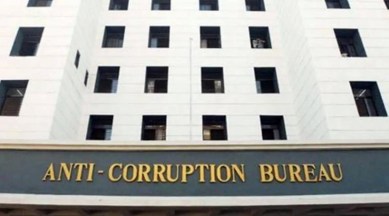Stay updated with the latest - Click here to follow us on Instagram
Maharashtra: In 6 years, two-thirds of probe requests by anti-corruption unit pending
Prior to July 2018, the ACB would not wait for an approval from the government. It would directly start a Preliminary Enquiry (PE), which could have led to the filing of a First Information Report.

A key amendment to the Prevention of Corruption Act by the Central government in July 2018 has resulted in Maharashtra’s Anti Corruption Bureau waiting for months and years to initiate inquiry against officials for alleged financial irregularities in almost two-thirds of its cases.
As per data obtained by The Indian Express from the state ACB, of the 547 requests sent as on March 2024 for approval to conduct an inquiry against an official suspected to have been involved in a financial irregularity, the ACB received approval in only 51 cases. While permission was rejected in126 cases, inquiry could not be carried out in as many as 354 cases with approvals pending as on March 31. These cases span different political combinations ruling the state — BJP-Shiv Sena, Maha Vikas Aghadi (Sena-Congress-NCP) and BJP-Sena (Shinde)-NCP (Ajit Pawar).
monthly limit of free stories.
with an Express account.
Prior to July 2018, the ACB would not wait for an approval from the government. It would directly start a Preliminary Enquiry (PE), which could have led to the filing of a First Information Report.
In July 2018, the Central government introduced Section 17 (A) to the Prevention of Corruption Act, which required the police to get an approval from the concerned Central or state government. It also required the government to convey its decision within three months, which may, for reasons to be recorded in writing, be extended further by a month.
An official from Maharashtra ACB told The Indian Express, “While the section gives a maximum of four months to give approval, it does not mention what action can be taken if the time limit is not followed. Hence, we cannot do much about it despite delays.”
Quoting a case, the official said, in 2022, the Mumbai unit of the state ACB received information that an Assistant Commissioner in the Brihanmumbai Municipal Corporation had cleared a Covid related tender to a company he had set up in his father’s name. It has been almost two years, but the ACB is yet to receive a response from BMC, the official said. “Hence, we could not initiate a probe in the matter,” he said.
Of the 354 approvals pending with the state, 210 related to senior officers and 144 requests are pending before the government department where the employee works. Except for two of these 354 cases, the ACB hasn’t heard back from the state or the concerned department for over four months.
Data shows there has been a sharp decline in the number of cases registered by the ACB in ‘other cheating cases’ which are usually related to financial misconduct over the last few years. It stood at 28 and 23 cases in 2017 and 2018 respectively, and plunged to just five cases in 2019 after Section 17(A) that provided protection to employees. While the number of cases registered in 2020 rose to 21, it slid to just two cases in 2021, nine in 2022, and five in 2023.
Section 17(A) that was introduced in 2018 makes it mandatory for anti-corruption bodies across the country, including the CBI, to first obtain permission from the department or the state government to which the official belongs, to even begin an inquiry against him/ her. If the agency is allowed to conduct an inquiry, it registers an FIR after finding prima facie evidence of irregularity, or the inquiry is closed. If evidence is found in the FIR, the agency files a chargesheet and the case goes to trial.
While this was done to protect government servants from frivolous complaints, many believe this has rendered anti-corruption units toothless to probe financial malfeasance. The new safeguard provided to government officials is in addition to Section 19(A) which mandates anti-corruption units to first seek sanction from the government/ government department if they want to file a chargesheet against a government servant.
As per obtained data, Urban Development (UD) department tops the list in Maharashtra with a maximum of 81 requests from ACB pending. All except two have received no response for four months – the maximum period as per the Act that the department can take to convey its decision.
This is followed by the Revenue department with 45 requests pending. The Rural development department has 40 requests pending. The secretaries of the three departments did not respond to queries.
Courts have repeatedly mentioned that the permission needed to give approval for enquiry was not so stringent and should be given liberally. In October 2023, the Supreme Court hearing the plea of former Andhra Pradesh Chief Minister Chandrababu Naidu’s lawyer that approval had not been obtained under Section 17A to register case against Naidu, observed, “While interpreting section 17A, we have to see that the very object of the Act to counter corruption does not get defeated. We cannot adopt an interpretation which will frustrate the objective of the Act.”